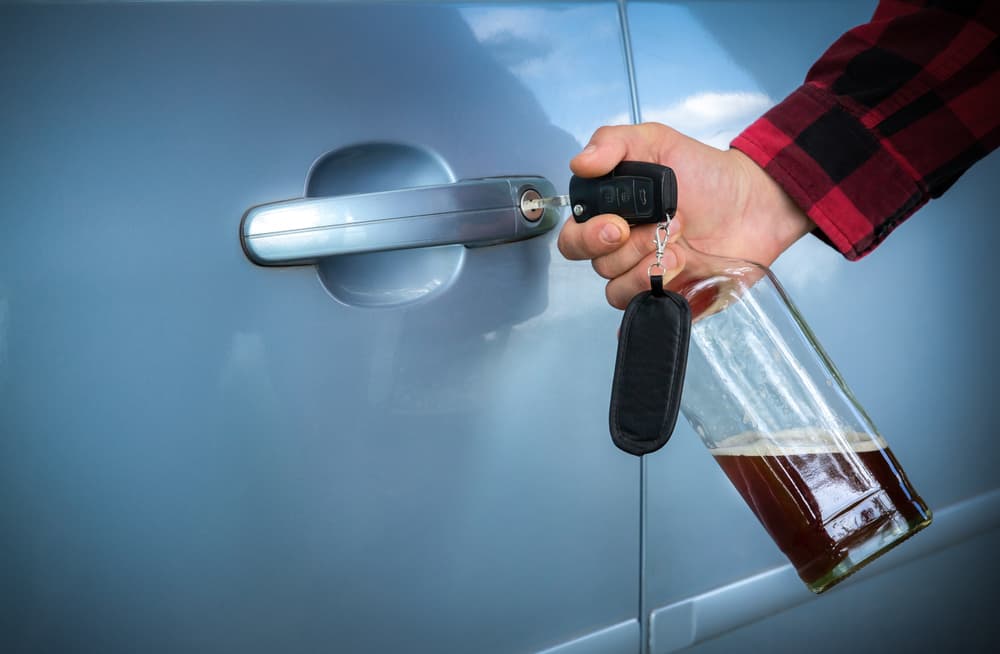How Drinking Affects Driving Ability
By Harold Dwin on February 18, 2022 | In Auto Accidents

All motorists should understand the dangers of drunk driving. Driving while intoxicated is unsafe, illegal, and potentially deadly. However, while the repercussions are clear, many people still don’t fully understand how alcohol can significantly impact a person’s cognitive abilities and basic motor skills. Here, we break down how alcohol impacts the body and an individual’s ability to function behind the wheel.
How Alcohol Affects Driving
Alcohol is considered a depressant. A depressant is a substance that impacts the central nervous system by slowing down the transmission of messages between the body and the brain. That can affect the body in several ways, from relaxing the muscles to making it difficult to see clearly. As a result, alcohol can significantly impact a person’s ability to drive a vehicle safely.
In general, alcohol can affect driving in the following ways:
- Impaired vision – Alcohol can affect an individual’s ability to focus their eyes and cause double vision. It can also cause blurry vision and impair a driver’s sense of depth perception, speed, and movement.
- Reduced reaction time – Alcohol consumption interferes with the body’s ability to process information. Since it takes longer to relay messages between the body and the brain, by the time the brain registers a potential hazard, it may be too late for the body to react accordingly. The brain might understand that it needs to tell the feet to hit the brakes, but by the time the feet get the message, an accident has already happened.
- Reduced concentration – Alcohol impairs the areas of the brain that control concentration, focus, and judgment, which can lead people to misjudge a situation and make risky decisions while behind the wheel.
- Drowsiness – Alcohol essentially acts as a sedative by causing you to feel relaxed, lethargic, and drowsy, making it difficult to react quickly or possibly even notice changing traffic conditions or hazards.
- Lack of coordination – Alcohol impairs eye coordination and muscle control, resulting in an overall lack of coordination, making it difficult for drunk driver to operate their vehicle safely and respond to emergencies.
How Blood Alcohol Content Levels Affect Driving
Measuring a driver’s blood alcohol content level, or BAC, is one way that the law determines inebriation when someone is pulled over or involved in a collision. BAC is a measure of the percentage of alcohol present in a person’s blood. If an individual has a BAC of 0.08 percent, it means their blood is 0.08 percent alcohol by volume.
When talking about BAC, a standard drink is defined as 12 ounces of beer, five ounces of 12 percent alcohol wine, or one and a half ounces of 80 proof liquor.
A Michigan University Health study found that approximately three standard alcoholic drinks can raise a person’s blood alcohol content to 0.05 percent. Even though a 0.05 BAC is technically below the legal limit for driving, it still impacts how the body functions. Consider how these BAC levels affect a person’s ability to operate a vehicle:
0.05% or three standard drinks
- Decreased basic coordination
- Slower response time to stimuli
- Reduced ability for the eyes to track objects
- Difficulty steering
0.08% or four standard drinks
- Potential short-term memory loss
- Impaired judgment
- Impaired self-control
- Inability to concentrate or think clearly
- Reduced ability to control the speed of a car
- Reduced coordination and mobility
0.10% or five standard drinks
- Significant deterioration of reaction-time and coordination
- Speech slurring
- Reduced ability to control a vehicle
- Cognitive impairments
0.15% or seven standard drinks
- Loss of balance
- Significant loss of coordination
- Potential for vomiting
- Hearing impairments
- Vision impairments
These measurements are typical for a 160-pound male. Women may experience the effects of alcohol more quickly.
Contact Our Maryland Drunk Driving Accident Lawyers Today
The National Highway Traffic Safety Administration estimates that 28 people die in drunk driving crashes every day. Countless others are left injured and vulnerable.
If you’ve been injured in a drunk driving collision in Maryland, contact the office of Cohen & Dwin, P.A., for help. We are ready to review your case for free and outline your legal options for seeking the money you need.

Attorney Harold P. Dwin, co-founder of Baltimore premier law firm Cohen & Dwin, P.A., is proud to be able to help clients in need by simplifying complex legal matters and solving legal problems that cause immeasurable stress.
